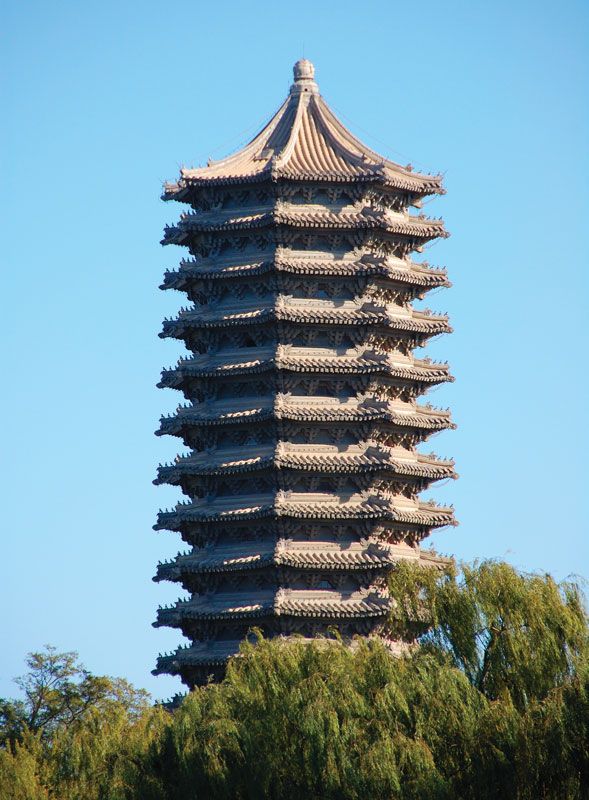


In a recent ranking of universities in Asia, China's Peking University was named the best university in the region, followed by the University of Hong Kong and the National University of Singapore. On the other hand, India's IIT Delhi and IIT Bombay secured the top two spots among Indian universities, while five other Indian institutes made it into the top 100 list. With China dominating the top rankings, the competition for the best universities in Asia continues to grow.
Asia's Educational Landscape: Peking University Tops QS Rankings
In a recent ranking of universities in Asia, China's Peking University has emerged as the undisputed leader, dethroning the National University of Singapore (NUS), which had held the top spot for four consecutive years. The QS World University Rankings Asia 2023 placed Peking University first, followed by NUS in second and the University of Hong Kong (HKU) in third.
China Dominates Top Rankings
China's dominance in the top rankings is evident with three of its universities securing positions in the top five. Tsinghua University climbed to fourth place, while Fudan University retained its fifth position. This dominance reflects China's significant investment in higher education and its focus on research and innovation.
India's Stellar Performance
Despite China's strong showing, India's top universities have also performed exceptionally well. The Indian Institute of Technology (IIT) Delhi and IIT Bombay secured the top two spots among Indian universities, with IIT Madras, IIT Kharagpur, and IIT Kanpur also making it into the top 100 list. This achievement highlights India's growing prominence as a global hub for education and research.
Competition for Excellence
The competition for the best universities in Asia continues to intensify. With China and India leading the charge, other countries in the region are also striving to improve their educational standards. This competition has led to increased collaboration between universities and the establishment of new research centers and international partnerships.
Top 5 FAQs
1. Why has Peking University ranked first in the QS Rankings Asia 2023?
Peking University has excelled in several key areas, including academic reputation, employer reputation, faculty-student ratio, and citations per faculty. Its strong performance in these indicators has contributed to its top ranking.
2. What is the significance of India's universities performing well in the rankings?
India's top universities' strong performance reflects the country's growing investment in higher education and its commitment to fostering research and innovation. These universities are playing a pivotal role in shaping India's future and enhancing its competitiveness on the global stage.
3. How can Asian universities improve their rankings?
Asian universities can improve their rankings by focusing on research excellence, attracting top faculty and students, enhancing international partnerships, and fostering a collaborative and innovative environment. Continued investment in education and research is also crucial.
4. What are the trends in higher education in Asia?
Emerging trends in higher education in Asia include an increased focus on STEM fields, interdisciplinary research, and collaboration between universities and industry. Digitalization and online learning are also gaining prominence.
5. What challenges do universities in Asia face?
Universities in Asia face challenges such as funding constraints, political interference, and the need to adapt to rapidly changing economic and technological landscapes. They also need to address issues of access and equity to ensure that all students have equal opportunities for higher education.

Indian Prime Minister Narendra Modi celebrated Diwali with Navy personnel on the country's new aircraft carrier, INS Vikrant. He extended Diwali greetings to the nation and shared highlights from his visit, including an air power demonstration and cultural program. PM Modi also addressed the significance of Diwali and expressed his best wishes to the families of the Navy personnel.

In a tense meeting at the White House, President Donald Trump urged Ukrainian President Volodymyr Zelensky to accept Russian President Vladimir Putin's terms for ending the two-year war in Ukraine. Despite seeking more military support from the US, Zelensky was met with resistance from Trump, who reportedly engaged in a "screaming match" with the Ukrainian leader. The US leader even claimed that Putin saw the conflict as a "special operation" rather than a full-fledged war, further complicating negotiations between the two nations.

As Liverpool struggled to find their form in a tough game against Manchester United, Dutch midfielder Cody Gakpo stood out with his sharp attack and strong composure. Despite hitting the woodwork three times, Gakpo managed to score a brilliant equalizer for his team, showcasing his potential and talent on the field. While Liverpool may have lost the match, Gakpo's impressive performance provided a glimmer of hope for a struggling team.

Ayodhya's Deepotsav 2025 was a shining example of faith, community, and innovation as the city set two new world records with over 26 lakh diyas and a grand aarti performed by 2,100 priests. The event, witnessed by Chief Minister Yogi Adityanath, also showcased a spectacular 3D projection mapping and drone light show that brought Lord Ram's story to life in the night sky. The event was a testament to the deep connection Ayodhya's youth have with Lord Ram's ideals and was made possible by the hard work of over 40 potter families and thousands of volunteers.

In a brazen and perfectly orchestrated robbery, a group of thieves infiltrated the world-famous Louvre Museum in Paris on Sunday morning and made off with a collection of priceless jewels with an estimated value in the millions. French officials confirmed the robbery and began a detailed investigation to determine how the culprits managed to evade the museum's advanced security systems and execute the crime in under seven minutes. This latest incident has raised serious concerns about the protection of national treasures at one of the world's most popular tourist destinations.

In an audacious heist, a group of armed thieves breached security at the iconic Louvre Museum in Paris and stole nine valuable jewels from the collection of Napoleon Bonaparte and Empress Joséphine. The robbery, which took place in just seven minutes, has prompted a full-scale police investigation and raised concerns about the museum's security. French officials are working to recover the stolen items, but the Louvre remains closed to visitors.

Despite a ceasefire in early October, the conflict between Israel and Palestine shows no signs of abating, with reports of ongoing deadly clashes and Israeli tank fire targeting a car in Gaza City. The closure of the Rafah border crossing to Egypt, citing Hamas's failure to retrieve bodies, has further exacerbated tensions. However, experts warn of the uncertain future for a transitional government in Gaza and the risk of breaching the fragile ceasefire. The violence and closure highlight the ongoing humanitarian crisis and the need for both sides to engage in peaceful negotiations.

Hundreds of travellers heading to India from Italy for Diwali were left stranded after Air India cancelled its Milan-Delhi flight due to a technical issue. The sudden breakdown of the flight raised concerns about making it home in time for the festival. Some passengers even face the prospect of celebrating Diwali away from home due to rebookings on alternate flights. Air India assured that they are prioritising passenger safety and comfort while providing necessary support to those affected.

On day 1,312 of Russia's war on Ukraine, tensions continue to escalate as Ukrainian drones target a Russian oil pumping station, Russian forces seize three more villages in eastern Ukraine, and NATO increases its presence in the Baltic Sea region. In response to the ongoing conflict, the Ukrainian security service reports that the SBU caused a fire and halted operations in the Chuvashia region, while Russia's military announced its continued advance in Donetsk and Dnipro. Meanwhile, NATO's decision to deploy additional military assets comes after several days of unidentified drone sightings in Denmark and at military bases.

The upcoming India-Australia ODI series has drawn attention for multiple reasons, including the successful return of Rohit Sharma and Virat Kohli as white-ball players. Despite being relieved of captaincy, the duo is expected to continue playing in the format until the 2027 World Cup, according to Australia's Travis Head and India's Axar Patel. As both teams gear up for a high-stakes clash, the focus remains on the future of these two icons and their potential to lead India to another ODI World Cup victory.